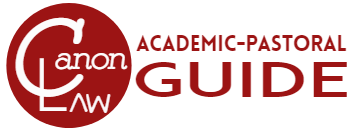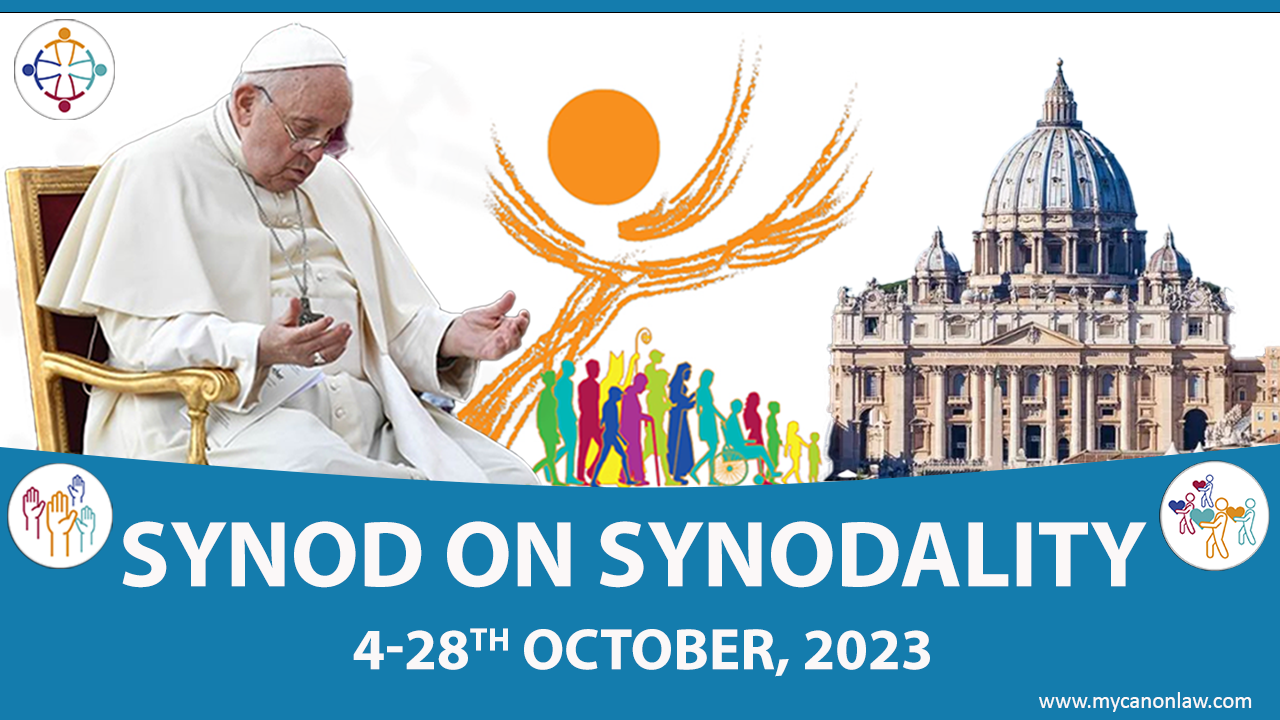Often, we hear the Church leadership convening several conferences and meetings on “Synod on synodality”. The question arises: “As to what is the meaning of synod on synodality”? well, we need to understand the Catholic Church’s organization which is founded on hierarchical structure coming from the tradition. However, with Pope Francis the Church continues to experiences several changes and modifications in the Church’s internal as well as external organization.
What is the meaning of synodality?
The term “Synodality” is derived from the combination of two Greek terms “syn” meaning “together”, and “hodos” meaning “way or journey”. Hence, “synod” is used to describe the notion of “walking or journeying together”, a process of fraternal collaboration and discernment in a group of community or body of members, such as the “Synod of Bishops”. It is extended to the wider group now with Pope Francis’s call to include the process of collaboration, contribution and discernment to the faithful members (people of God) in the universal Catholic Church.
Pope Francis on synodality
Pope Francis in his address had mentioned about the notion of synodality several months before the announcement of the actual synod which is taking place now. Pope Francis said: “Synodality is a style, it is a walk together, and it is what the Lord expects from the Church of the third millennium”.
The International Theological Commission describes “synodality” in the following expression: “Synodality is the action of the Spirit in the communion of the Body of Christ and in the missionary journey of the People of God”. One may ask “who is the people of God” and how do we understand “the people of God”? The Code of Canon Law uses the expression “Christ’s faithful” to refer to the “People of God”. In the provision of norms, as per canon 204, it says: “Christ’s faithful are those who, since they are incorporated into Christ through baptism, are constituted the people of God. For this reason, they participate in their own way in the priestly, prophetic and kingly office of Christ. They are called, each according to his or her particular condition, to exercise the mission which God entrusted to the Church to fulfil in the world”. The expression “particular condition” means the canonical status of each faithful, that is, primarily – the laity, clergy, married, unmarried, and the members of the consecrated life in the Religious Institutes, Secular Institutes and Societies of Apostolic Life.
Synodality and its implication in the Church
Thus, the “synodality” could be understood as a process by which the Church undergoes discernment on various issues touching upon the lives of the members of the Church according to their canonical condition or status of life. Hence, assisted by the works of the Holy Spirit, as on the day of Pentecost in the Early Church, the faithful members consisting of laity, clergy – Bishops, Priest, Deacons, members of the Consecrated Life – Religious and Secular members, each use their own gifts and charism to help the Church make decisions, discern, contribute and consolidate the mission of God which invisible but operative through the visible body of the Church. Some experts believe that the notion of the Church as “synodal” must be carefully used and applied because by its very nature it requires “careful theological clarification” as it is apparently relatively a new concept.
Why a synod?
Several ordinary faithfuls have asked this question and keep repeating asking this still today: “Who is the synod for”? Is it only for the “Religious leaders” – bishops, parish priests, priests, religious men and women, seminarians etc.? No. By convoking this Synod, Pope Francis is clearly inviting all the “Baptized faithful” as the theme itself suggests “communion, participation, mission” to participate in this process of synodality divided into at least four phases – first, the diocesan phase, second the Episcopal Conference and the Synod for Oriental churches phase, third the Continental phase, and finally the fourth, the Universal phase. It began with the diocesan phase in 2021.
Canon law and the synod
How does the Code of Canon Law define and describe the synod? The Code establishes norms regarding the “Synod of Bishops” (canons 342-348) under the hierarchical constitution of the Church in its Book II “The People of God”.
According to canon 342, the synod of Bishops is a group of Bishops selected from different parts of the world, who meet together at specified times to promote the close relationship between the Roman Pontiff. The structure of the Church leadership is hierarchical. However, this structure has its pastoral care and assistance of the faithful to live their faith in the Church. The canon further describes that the purpose of the closeness of Bishops with the Roman Pontiff is basically, in the defense and development of faith and morals and in the preservation and strengthening of ecclesiastical discipline. The synod of Bishops in communion with the Pope also considers questions concerning the mission of the Church in the world. From the beginning of the “Synod on synodality”, Pope Francis has insisted on giving importance and recognition to the people on the periphery. This involves one of the priorities in the mission of the Church to embrace everyone by listening to them with pastoral care and love.
What is the function of the synod of Bishops?
Canon Law specifies the function of the synod of Bishops is to discuss the matters proposed to it and set forth recommendations (canon 343). The canon 343 further establishes what is not the function of the Bishops in the following words: «It is not its function to settle matters or to draw up decrees, unless the Roman Pontiff has given it deliberative power in certain cases. In such events, it is the Roman Pontiff who takes upon himself to ratify the decisions of the Synod».
From the above canonical norm, it is clear that the synod of Bishops does not have a legislative power, i.e., it cannot issue or draw up decrees. From it follows that the synod of Bishops can only give suggestions and advice the Pope to make decisions on certain matters. Hence, the Synod of Bishops is a «consultative body» and not the «deliberative body». In the Motu Proprio Apostolica sollicitudo, Pope Paul clearly indicates, that by its very nature the task of the Synod is to inform and give advice [cf. AAS 57 (1965) 776-777]. Canon law experts agree that now it has become customary for the ordinary sessions of the Synod of Bishops to prepare lists of «propositions» with the help of the “counsel members” and present them to the Pope. The Pope uses this proposition to prepare the «Apostolic Exhortation».



